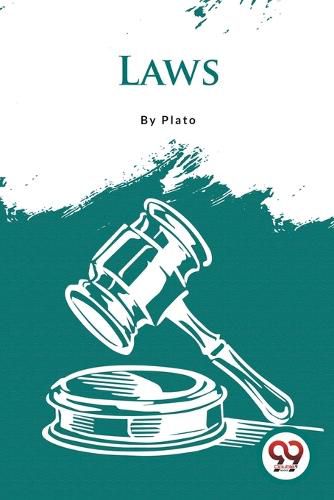Readings Newsletter
Become a Readings Member to make your shopping experience even easier.
Sign in or sign up for free!
You’re not far away from qualifying for FREE standard shipping within Australia
You’ve qualified for FREE standard shipping within Australia
The cart is loading…






This title is printed to order. This book may have been self-published. If so, we cannot guarantee the quality of the content. In the main most books will have gone through the editing process however some may not. We therefore suggest that you be aware of this before ordering this book. If in doubt check either the author or publisher’s details as we are unable to accept any returns unless they are faulty. Please contact us if you have any questions.
The Laws is Plato's final, most extensive, and arguably most despised treatise. Three elderly men-an anonymous Athenian, a Spartan named Megillus, and a Cretan named Clinias-converse about political philosophy throughout the book. These men are drafting the laws that will govern Magnesia, a brand-new Cretan colony. The government of Magnesia is a blend of democratic and authoritarian values that seeks to create a joyful and morally upright society for all of its residents. Like Plato's other works on political theory, such as the Statesman and the Republic, the Laws also includes substantial treatments of psychology, ethics, theology, epistemology, and metaphysics in addition to political theory. The Rules, in contrast to these other writings, combine political philosophy with practicing law and go into considerable depth about the laws and procedures that Magnesia should have. Although many have attributed Plato's poor writing to his advanced age at the time of composition, readers should remember that the book was never finished. The Laws' arguments are worth our study, despite the fact that some of these objections are valid, and the dialogue has a unique literary quality.
$9.00 standard shipping within Australia
FREE standard shipping within Australia for orders over $100.00
Express & International shipping calculated at checkout
This title is printed to order. This book may have been self-published. If so, we cannot guarantee the quality of the content. In the main most books will have gone through the editing process however some may not. We therefore suggest that you be aware of this before ordering this book. If in doubt check either the author or publisher’s details as we are unable to accept any returns unless they are faulty. Please contact us if you have any questions.
The Laws is Plato's final, most extensive, and arguably most despised treatise. Three elderly men-an anonymous Athenian, a Spartan named Megillus, and a Cretan named Clinias-converse about political philosophy throughout the book. These men are drafting the laws that will govern Magnesia, a brand-new Cretan colony. The government of Magnesia is a blend of democratic and authoritarian values that seeks to create a joyful and morally upright society for all of its residents. Like Plato's other works on political theory, such as the Statesman and the Republic, the Laws also includes substantial treatments of psychology, ethics, theology, epistemology, and metaphysics in addition to political theory. The Rules, in contrast to these other writings, combine political philosophy with practicing law and go into considerable depth about the laws and procedures that Magnesia should have. Although many have attributed Plato's poor writing to his advanced age at the time of composition, readers should remember that the book was never finished. The Laws' arguments are worth our study, despite the fact that some of these objections are valid, and the dialogue has a unique literary quality.